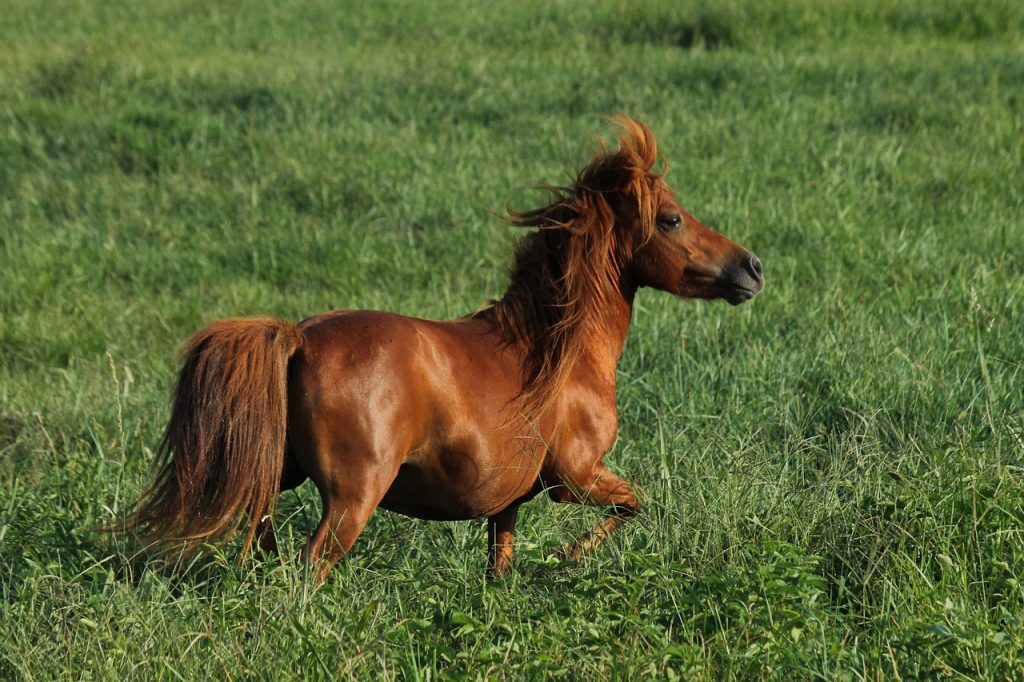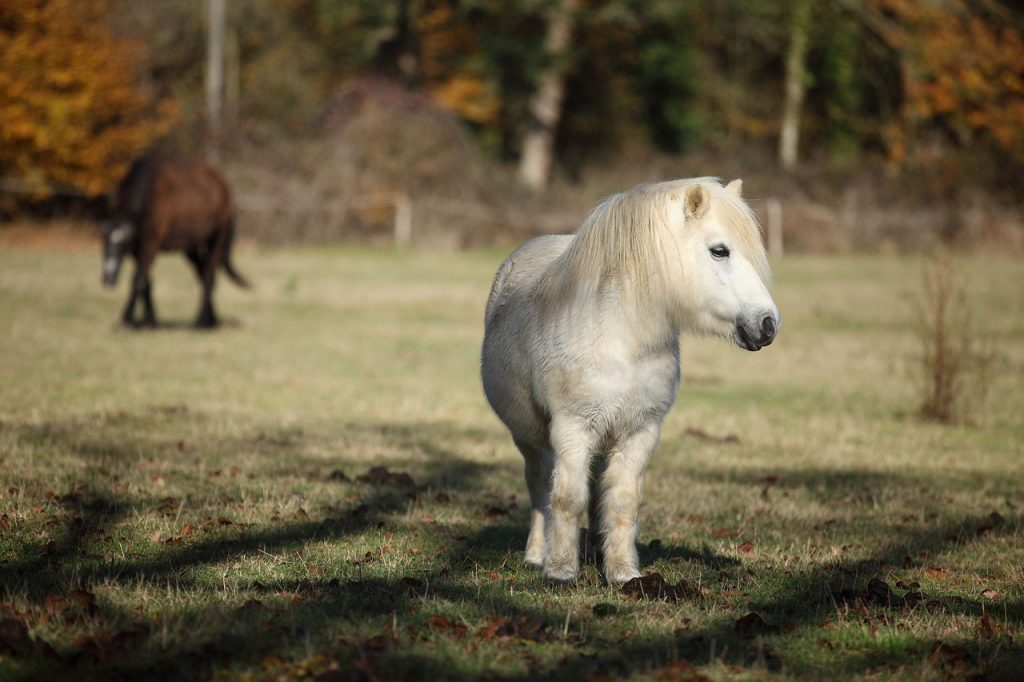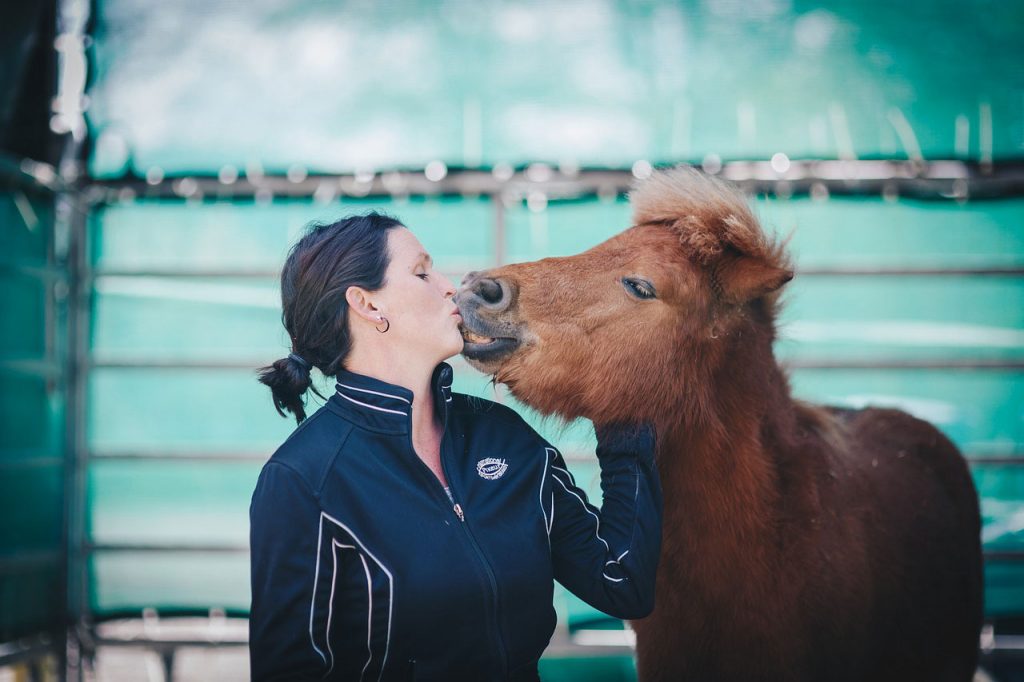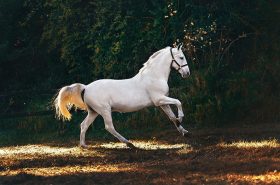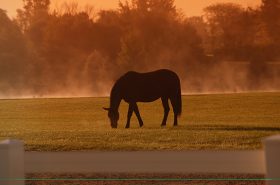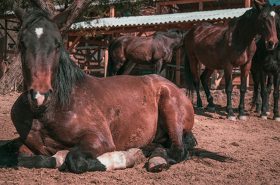These pint-sized horses are like potato chips- you can’t have just one!
Chances are you’ve come across a miniature horse or two. This popular breed of horse has been around for quite a long time. They are frequently seen as family pets or companions, but did you know there’s a competitive show type, as well? Miniature horses are very versatile. Test your knowledge and see much you actually know about this amazing breed!
History
First developed in Europe in the 1600s, Miniature horses were frequently seen as pets of nobility. They also worked in coal mines. The first mention of a small horse in the United States wasn’t until 1888. The public knew little about these small horses until the 1960s. They began to grow in popularity at this time.
The American Miniature Horse Association was formed in 1978 to help establish the breed from other ponies and small horses. According to their rules and regulations, the animal couldn’t exceed 34 inches in height in order to qualify for registration.
Characteristics of Minis
Within the Miniature horse world, there’s a lot of variety. Some minis are built stockier and almost resemble draft horses. They have thicker bones and are usually quite hardy. On the other hand, there’s also a more refined, elegant type. They tend to be more popular. You’ll notice traits similar to Shetland ponies, Arabians, and Hackney ponies.
In the show ring, judges prefer a small horse that maintains nearly perfect proportions. They should have a wide forehead, big eyes that are set apart, and a smaller muzzle with large nostrils. A lean yet athletic body is also desirable.
These unique horses come in nearly every color imaginable. Some have solid coats, while others are spotted like an Appaloosa. There’s even a variance in eye color!
Registration
There are two different registries within the United States: the American Miniature Horse Association (AMHA) and the American Miniature Horse Registry (AMHR). The AMHA requires horses to be 34 inches or below, while the AMHR offers two different divisions. The A group must be 34 inches or below, whereas the B group can be 34 to 38 inches tall.
Both issue temporary registrations while the horse is young and growing. Once they reach a certain age, they are measured and recorded as permanent.
Usage & Showing
Minis make great companion animals. They also make wonderful pets for children and people with disabilities. Some can even be certified as therapy animals. Most are too small to be ridden, but a young child may be able to.
There are a lot of opportunities to show them, as well. You may find the following classes:
- Halter
- Showmanship
- In-hand jumping & hunter
- Liberty
- Driving
- Costume
- Obstacle & trail classes
Should You Own a Miniature Horse?
As mentioned, these loving animals make the perfect pets for families. They are usually easy keepers and definitely cost less to feed than a regular-sized horse. Many people see them as investments and get involved with the breeding and showing aspect.
Miniature horses do have their share of drawbacks though. They need to be trained just like a regular horse or they can develop nasty habits. Their diet also has to be monitored as obesity is a common problem. And lastly, those breeding need to be aware of dwarfism and the inherent health risks associated with this condition.
Anyone considering this breed must know one important thing: it’s HARD to own just one. Once you buy a mini, you’re likely to want another and another. They’re that addicting!
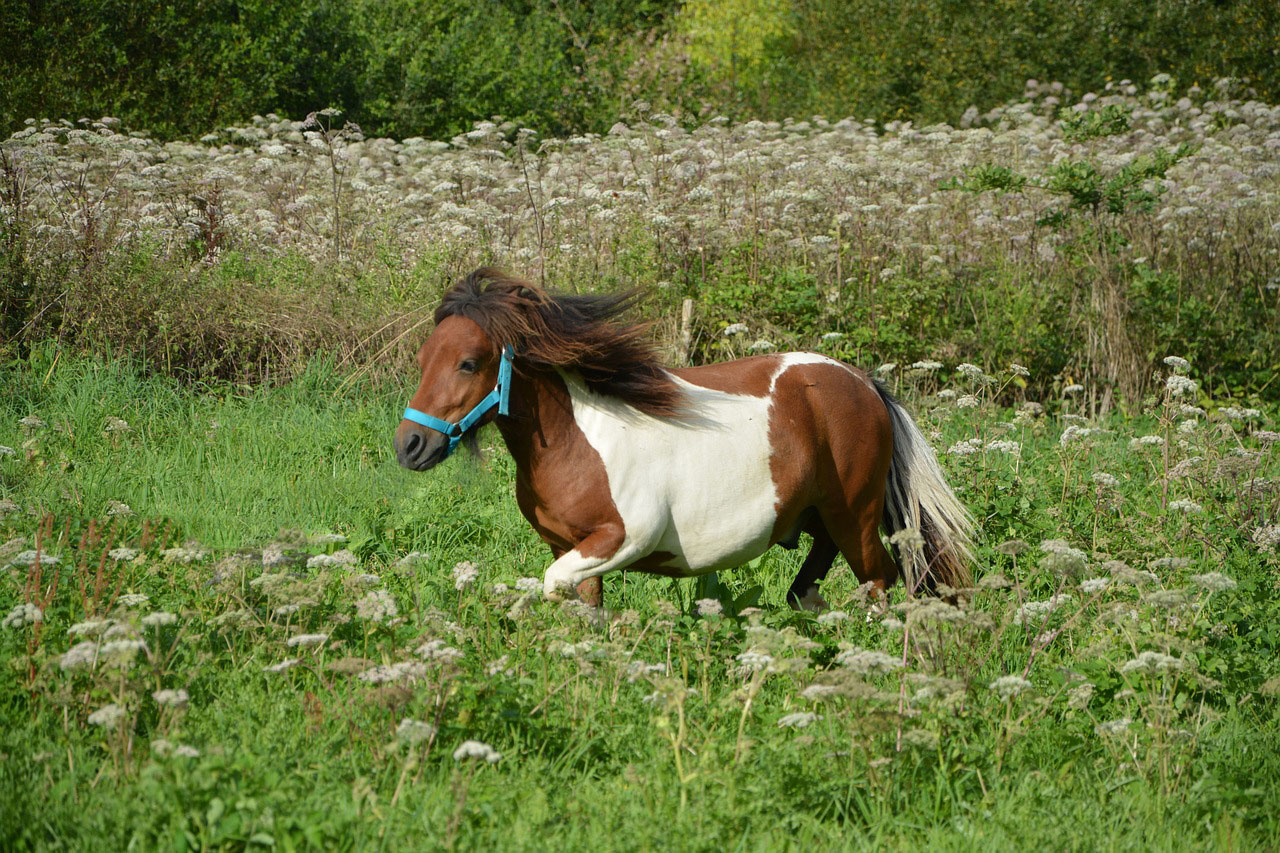
Love this blog post? We think you will like Fencing for Miniature Horses by Casie Bazay.

